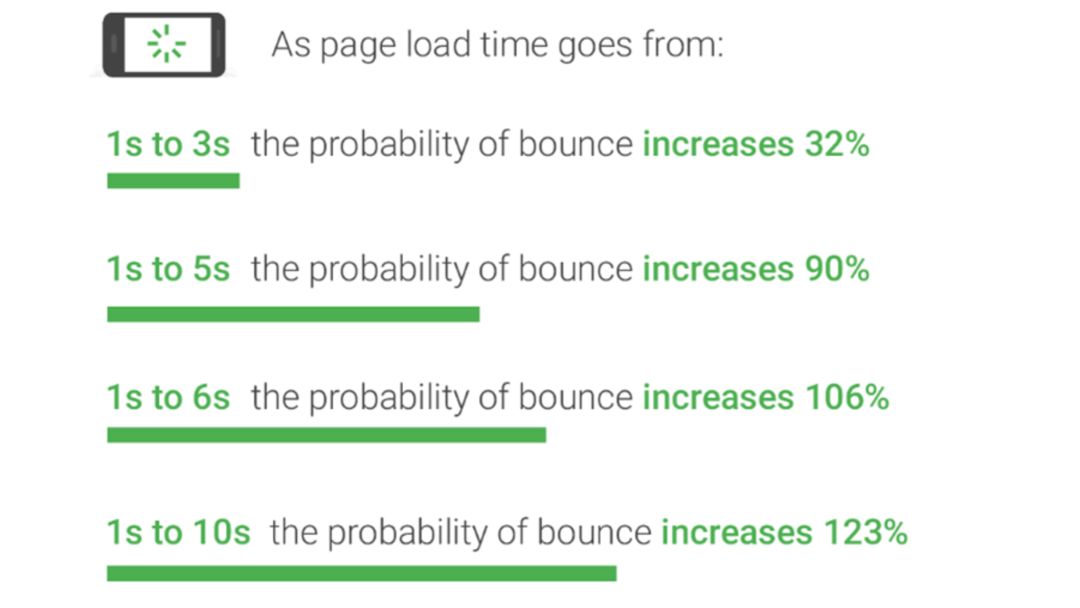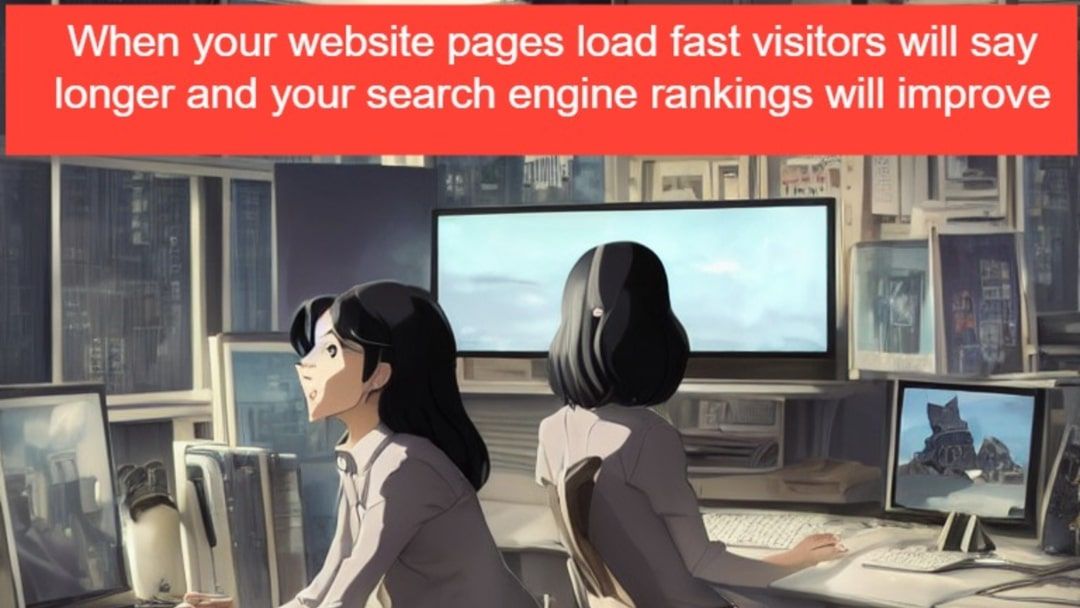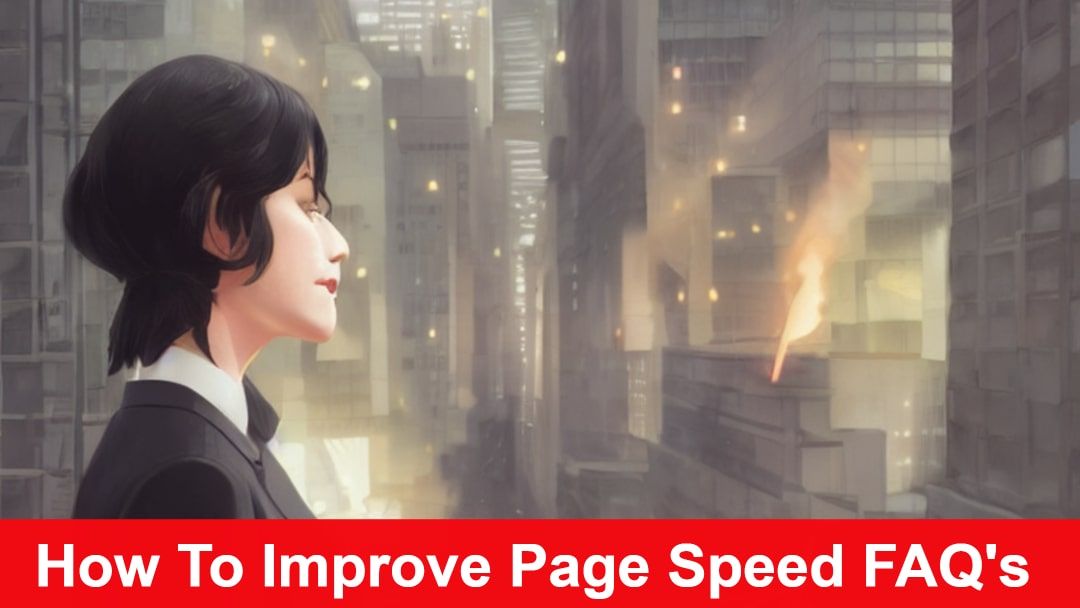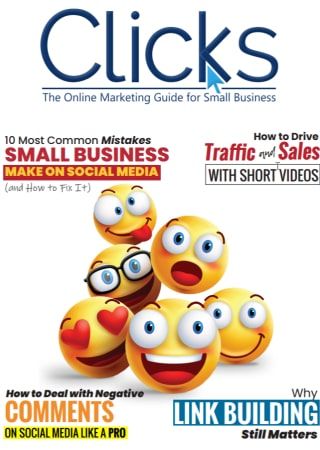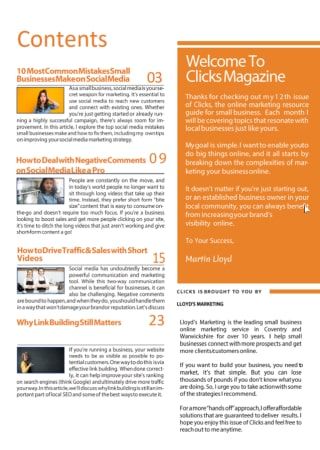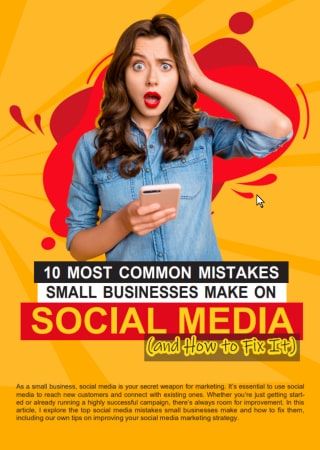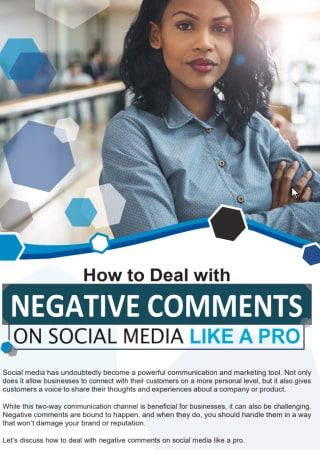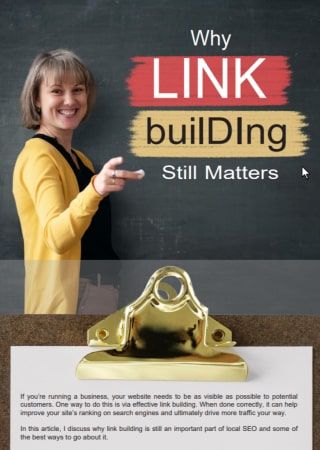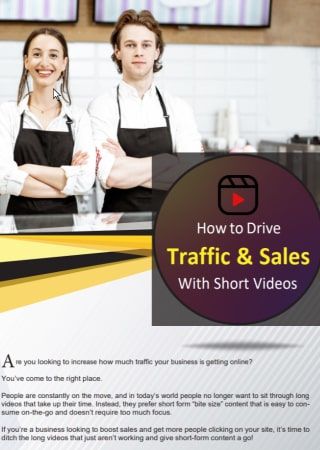Table of Contents
Why page speed is vital to the success of your website. And, how to improve page speed.
When it comes to the performance of your website, page speed is vital, and it also helps you to rank your website in the search engines and Google’s 3-Pack https://lloydsmarketing.uk/google-3-pack-rankings/
Your web pages must load quickly and seamlessly to lower your bounce rate and boost visitor engagement.
In this post I’ll explain why it’s important, and show you how to measure it and improve your page speed.
According to Google research, every second counts when it comes to page loading speed. Increasing loading times from one to three seconds increases the likelihood of a bounce (the visitor leaving immediately) by 32%.
A shocking 90% of visitors will leave a site if it takes longer than five seconds to load.
The speed of a website has a significant impact on user experience, SEO, and conversion rates. Improving website performance is critical for attracting visitors and keeping them engaged. Here are some steps that you can take with your developer to make your website load faster:
How to Improve Page Speed 1 – Run a Website Performance Test
Website speed tests determine how well a website performs. Testing a website on a regular basis can help developers identify some or all the areas that are slowing down website performance, as well as areas for improvement.
There are numerous high-quality site speed tests for measuring performance, many of which are free, such as Pingdom.com. https://tools.pingdom.com/
Google also provides PageSpeed Insights for more in-depth performance testing while Google Chrome “DevTools” can also assist developers in evaluating the performance of their website.
How to Improve Page Speed 2 – Use a Content Delivery Network (CDN) (content delivery network)
CDNs increase website speed by caching content in multiple locations around the world. CDN caching servers are usually closer to end users than the host, or origin server. Requests for content are routed to a CDN server rather than the hosting server, which may be thousands of miles away and spread across multiple autonomous networks from the user. Using a CDN can significantly reduce page load times.
How to Improve Page Speed 3 – Image and Video Optimisation
Images account for a large portion of Internet traffic, and they frequently take the longest to load on a website because image files are larger in size than HTML and CSS files. Image optimisation, fortunately, can reduce image load time. Image optimisation typically entails lowering the resolution, compressing the files, and shrinking their dimensions, and many image optimisers and image compressors are freely available online.
For my websites, I use Publitio to host my images and videos which are delivered at lightning speed without taking up resources on my host’s server. Publitio offer a free 14-day trial
How to Improve Page Speed 4 – Lower the Number of HTTP Requests if You Can.
Most webpages will necessitate multiple HTTP requests from browsers for various assets on the page, such as images, scripts, and CSS files. Indeed, many web pages will necessitate dozens of these requests. Each request necessitates a round trip to and from the server hosting the resource, which can increase the overall load time of a webpage. Furthermore, because the resources are loaded from multiple providers, a problem with one of the hosts may impact the web page’s ability to load quickly, or at all.
Because of these potential issues, the total number of assets that must be loaded by each page should be kept to a minimum. A speed test should also help identify which HTTP requests are taking the longest. For example, if images are slowing down a page’s load time, developers can look for a faster image hosting solution (such as a CDN or Publitio).
How to Improve Page Speed 5 – Cache Your Website’s Pages.
Caching is one of the most effective methods for speeding up your website. Caching saves copies of your website’s files, reducing the amount of work required by the server to generate and serve a web page to a visitor’s browser.
By requiring the server to use fewer resources to load a page, caching your web pages can help reduce the Time to First Byte (TTFB).
There are several methods for caching your web pages. This can be done at the server level, which means your host will handle it for you.
Another option is to use a caching plugin, such as W3 Total Cache https://wordpress.org/plugins/w3-total-cache/, a free WordPress plugin that makes caching web pages simple. After you’ve installed and activated it, go to General Settings > Page Cache and check the Enable box.
How to Improve Page Speed 6 – Reduce the Use of External Scripts.
Any scripted webpage elements loaded from elsewhere, such as external commenting systems, CTA buttons, or lead-generation popups, must be loaded each time a page is loaded. Depending on the size of the script, this can cause a webpage to slow down or not load all at once (this is known as ‘content jumping’ or ‘layout shifting,’ and it can be especially aggravating for mobile users).
How to Improve Page Speed 7 – Avoid Using Redirects at times if Possible.
A redirect occurs when visitors to one website are forwarded to another. Redirects increase page load time by a few fractions of a second, or even whole seconds in some cases. Every second counts when developing a website that is optimised for performance. Redirects are sometimes unavoidable, but they should be avoided if possible.
How Fast Should A Website Load?
2-3 seconds. If you have an e-commerce website aim for 2 seconds or faster. If you own a service business website aim for 1.6 seconds or faster.
How Do I Test My Website Load Speed?
My favourite way is to use two free website speed checkers:
Pingdom Website Speed Test which also analyses any bottlenecks in the loading of your website.
What Are The Causes For A Slow Loading Website?
Not using a content delivery network (CDN)
Not optimising your images and videos to reduce load times.
Excessive HTTP requests.
Not caching your website pages
Using a poor website hosting service. If you have a WordPress website and would like me to manage and host it on my lightning-fast servers for just £30 per month.
How Do I Optimise Images For My Website?
I personally use a paid service called Publitio where they store my images and videos on a very fast and specialist server. This takes away the necessity of having to keep media files on my Host’s server which will always be slower. Publitio offers a 14-day Free Trial so you can test it out.
Other Image Optimisers:
If you want a free online image optimiser my favourite one is Compress. It’s very easy to use and fast. It will dramatically reduce the file sizes of JPEG, PNG, PDF and GIFs
You could also try TinyPNG which compresses PNG and JPEG images.
If your website is a WordPress one and you prefer to use a plugin you can use the free version of Smush which compresses your images and lazy loads them. You can find out more detail and download the plugin here
What Is Caching?
Caching is the process of storing copies of website data files in a cache, or temporary storage location so that they can be accessed easily and quickly.
If your website isn’t a WordPress one I reccomend using Cloudflare. They offer a free and paid service. The free service will suit most non ecommerce sites.
However, if your website is a WordPress one, I highly recommend the free plugin W3 Total Cache. Click here to go the their free download page.
Is There A Free Tool That Performace Tests My Website?
I personally like WebPageTest by Catchpoint. Their website gives you a free perfomance test of your website. They also offer a free starter plan with 300 test runs each month so you can keep easily on top of your websites performance.
Additional Resources on How to Improve Page Speed
How to score a perfect 100% on Google PageSpeed Insights by Neil Patel https://neilpatel.com/blog/google-pagespeed-insights/
Remember that every second your website takes to load increases the likelihood that your visitors will leave. If your website is running slow, how long can you keep running your business while losing leads? Is it time to speed things up?
Some of the hyperlinks in this post are affiliate links. This means if you click on them and then purchase the product/service being offered by the website, I will receive a sales commission.
However, by purchasing through my affiliate link you will not pay more for your purchase than if you went directly to the website concerned.
These commissions help me finance the free marketing resources provided for you on my website
I would love your honest feedback about this post. Let me know in the comments section below and if you are in the first 20 comments, you will receive a FREE branded Halloween image and video social media post package
FREE Social Media Resources
E-book – 365 Awesome Social Media Post Ideas
If you need ideas for your social media content, download my E-book by clicking here
30 Social Media Engagement Posts
These Facebook and Instagram engagement posts are suitable for any type of business. And they come with a text introduction for each social media post image. Click here to download them now.
100 Motivational/Inspirational Facebook and Instagram posts. The ideal way to inspire your followers each day. These also come with a suggested text introduction. You can check them out here.
Some Of My Other Easy Marketing Posts You Can Quickly Profit From:
How to Drive Traffic and Sales with Short-Form Video
Why Link Building Really Matters
How to Deal With Negative Comments on Social Media Like a Pro
10 Most Common Social Media Marketing Mistakes Made by Small Businesses & How to Fix Them
Download Your Free Small Business Marketing Magazine
Keep ahead of your competitors by keeping up-to-date with the latest small business marketing trends and proven marketing strategies and tactics.
Click Here to download this month’s edition. No sign up required.
Affiliate Links
Some of the hyperlinks in this post are affiliate links. This means if you click on them and then purchase the product/service being offered by the website, I will receive a sales commission.
However, by purchasing through my affiliate link you will not pay more for your purchase as if you went directly to the website concerned.
These commissions help me finance the free resources provided on this website and my social media profiles.


